Calendar of events
Here you will find all of our congregation’s Sunday Services, Board and Committee meetings and other events. Use the calendar controls to see events for past or future dates. For a quick look at recent Sunday Services, click here!

-And just what can we expect to receive, anyway? And by the way, what does this have to do with Thanksgiving??? Join us as we explore the mysterious power of Asking.

As an art student of visual art and art history, I spent 2-4 art history classes a week in a darkened room with projections of art on the wall. One of the strongest and most persistent questions from this very potent period of my life has left me with, is; what is spirituality in art? The first art, in western art history, that was defined as abstract was spiritual. These early 20th Century artists endeavored to paint spirit, beauty, the soul as personal spiritual beliefs rather than religious beliefs, while also being very engaged in the advancements in science.
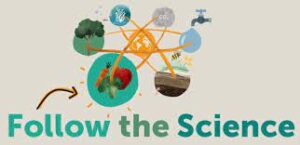
The covid-19 pandemic had many people debating “the science” as each new shred of data hit the news and social media. Politically, ‘science’ was often stated as the chief reason for important policy decisions. What is science, though? One of the sources of UUism is “Humanist teachings which counsel us to heed the guidance of reason and the results of science, and warn us against the idolatries of the mind and spirit.” Dr. Sepideh Heydari has been a neuroscientist at UVic and is now an IT analyst at Island Health.


Remembrance Day is a time to remember those who died in wartime, to consider why humans go to war, and to discuss how to strive for peace. Today’s service speaks to all who never want to see war again. Peter is a BC historian, a member of both Victoria UU congregations, and the Unitarian chaplain to the University of Victoria. Before moving to Lekwungen territory, he served 21 years in the RCAF.
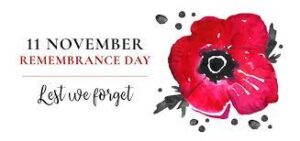
If you would like to join via zoom, please contact Niki at the church office churchoffice@victoriaunitarian.ca to receive access to the zoom link.
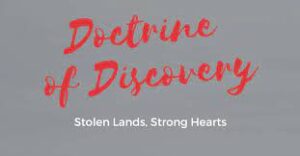
In the interests of promoting Truth, Healing and Reconciliation, we invite you to learn about the Doctrine of Discovery. This papal bull was brought to the attention of Canadians following the death of Queen Elizabeth II and also during the visit of Pope Francis to Canada. In 2021/22 several Victoria UUs joined a study group on the excellent film Doctrine of Discovery: Stolen Lands, Strong Hearts, produced by the Anglican Church. They will share with you their increased understanding of the implications of the Doctrine of Discovery on ongoing efforts towards reconciliation. You may be interested in viewing the 67-minute video on which the study group focussed: https://www.youtube.com/watch?v=mQwkB1hn5E8
Amanda Tarling, Jan Greenwood, Sarah Weaver and Karen Christie are active members of our congregation, and a couple participate in the Truth Healing and Reconciliation team of UUs in Victoria (THRUU), a small group from both UU congregations in Victoria. THRUU’s mandate is to facilitate educational opportunities in the interests of contributing to the reconciliation process. All speakers participated in the study group on the Doctrine of Discovery and most in the earlier groups for the CUC’s Indigenous Film Discussion Series.
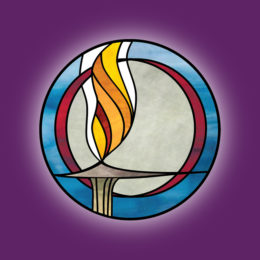
(No in person service at JBNH this week)
We Unitarian Universalists are a covenantal people. Our faith tradition believes in the power and possibility of covenant – a set of shared promises, agreements, and understandings to hold us together. How does a vision of covenant hold us together when we disagree? How does our faith community covenant overlap and diverge from the other covenants of our lives (being a partner or parent or friend or citizen of the world?)? How is all of this impacted by how well we are keeping a covenant with ourselves, our own well being? Join Revs Shana Lyngood and Anne Barker in exploration and reflection.
Where: Zoom, YouTube Live
Use the bitly link to join the service on Zoom, or watch live on the CUC’s YouTube channel.
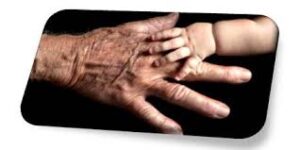
Toko●thanat●ology is the theoretical study of the parallels between birth and death, especially in medical care. What do birth and death have in common? They both represent times of profound change, when patients and their families need emotional support and empathy from their caregivers—things they don’t teach in medical school. The practical skills and knowledge required to provide care in obstetrics and palliative care are essential. But dealing with the deeper meaning, the human connection, is equally important. The very nature of these events encourages the caregiver to walk alongside the patient, to assist rather than control. In her recent book, “Bookends: A Family Doctor explores Birth, Death and tokothanatology,” Dr. Susan Boron explores the powerfully human aspects of caring for people at both ends of their lives. She shows how expertise in one area of care easily transfers to the other, increasing confidence and improving care and satisfaction for practitioner and patient alike. Susan also talks about her parents, Murray & Elinor Enkin.

Rev. Dr Holly Ratcliffe moved to Montreal about one year after the massacre of the fourteen women engineering students at la Polytechnique and have lived there ever since. As a woman of faith and more recently a ceramic artist who makes funeral urns, I will be reflecting on the kinds of monuments created to remember these women and on the film and plays that have been created in the wake of the massacre, which address some of the social issues that the event raises. How do they speak to us now?

Joy attended services at a mosque, synagogue, Ukrainian Catholic church and Quaker meeting house. Touching on the different rituals, spaces, messages and communities, Joy will present what it meant to learn more about what members of our human family are doing in their spiritual practices and religious organizations. Joy Huebert is an attender at the Vancouver Island Quaker Meeting and former member of the Unitarian Church in Edmonton. Raised in a strict Mennonite community in Winnipeg, Joy continues to explore cultural and personal aspects of the human experience of religion and spirituality. ** in-person; no Zoom; the homily will be recorded and posted online later.

The word “solstice” derives from the phrase “sun stands still.” During this busy season join Amanda for a ritual of slowing down and embracing the dark. We will have lots of carol singing and celebration too.
Copyright © 2025 :
Capital Unitarian Universalist Congregation
WordPress Theme : Faith and Web

